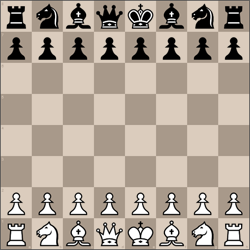 Chess 28 Aug 1960, Sun The Boston Globe (Boston, Massachusetts) Newspapers.com
Chess 28 Aug 1960, Sun The Boston Globe (Boston, Massachusetts) Newspapers.com
Chess Notebook
By LYMAN BURGESS
Robert Byrne, 32, instructor at the University of Indianapolis, won the 1960 U. S. Open chess championship at St. Louis. He defeated Dr. Paul Poschel, Ann Arbor, in the final round to bring his winning total to 10½-1½. The new champion lost to Anthony Saidy, Queens, in the 6th round and drew with Curt Brasket, St. Paul, in the fifth round. Arthur Bisguier, defending champion, had been in the lead or shared the lead for the greater part of the tournament. But in the 10th round Byrne defeated Bisguier and this game was perhaps the key match in the dethroning of the ex-champion.
Byrne received worldwide publicity a few years back when he defeated three grandmasters in four days during the chess Olympics.
United States Chess Federation has decided against entering a team in the 1960 chess Olympics at Leipzig. The U. S. State Department did not offer to support an American team, according to Jerry Spann, president of U.S.C.F.
Spann said the unavailability of several key players was an other reason for the decision against participation this year. A spokesman for the State Department said the department generally advises Americans against traveling in East Germany because there are no U.S. diplomats there to protect them.
Before World War II U.S. teams dominated the biennial team tournaments, but with the advent of the Russian teams American teams have not fared so well. This year's triumph by our student team seemed to foreshadow better times ahead. A team of Reshevsky, Fischer, Lombardy, Evans (on his Buenos Aires form), Robert Byrne and you name the other one (Bisguier, Benko, or Charles Kalme, for instance) could not, perhaps, be matched by anyone but the loaded Soviet Union.
Geoffrey Mott-Smith died in New York Aug. 19. He was an expert on games and languages. Chessplayers will remember his fine series in Chess Review and his off-beat approach to problems.
Kazys Merkis, South Boston, defeated Pedro Cherta, Barcelona, in the IV World Team Correspondence Championship.
299. Sicilian Defense.
Pedro Cherta (white) vs. Kazys Merkis (black)
Sicilian Defense: Najdorf Variation, Lipnitsky Attack
And White resigns because he cannot find an adequate defense against Black's threats from powerfully posted pieces. If White tries to protect the KP he loses immediately, i.e. 31. Q-K2, RxKP!; 32. QxR B-Q3!.























